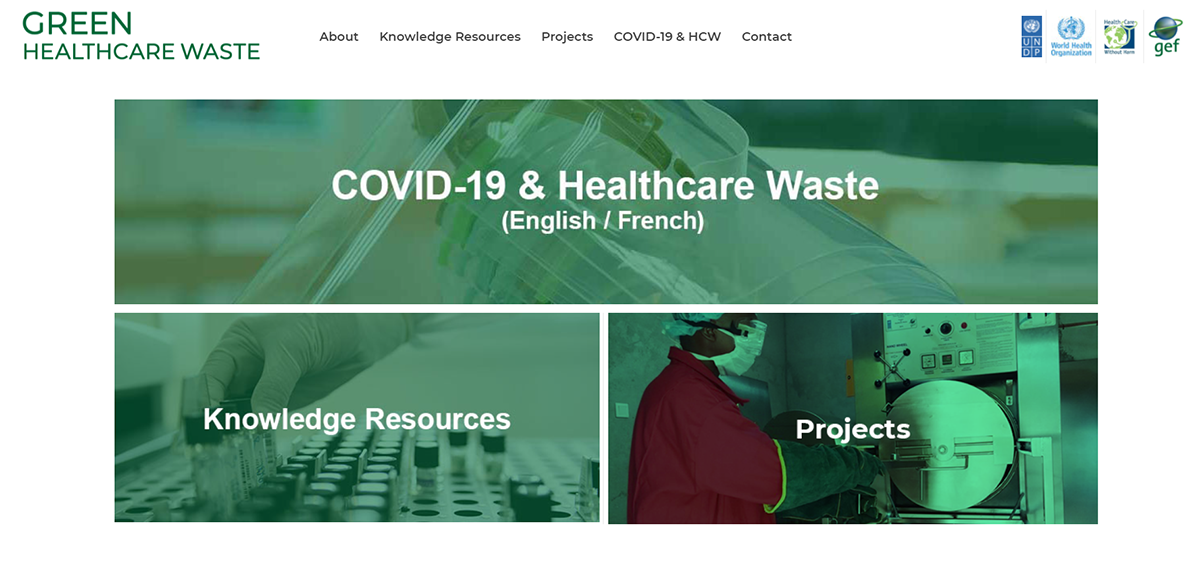From 2016 to 2020, Health Care Without Harm, the United Nations Development Programme (UNDP), and the World Health Organization (WHO) collaborated in a project funded by the Global Environment Facility (GEF) to reduce Unintentional Persistent Organic Pollutants (UPOPs) and mercury releases from the health sector in Africa.
The resources that resulted from this project are available in the knowledge repository of the Green Healthcare Waste site, which includes over 750 technical resources in 14 languages for projects with healthcare waste components in developing countries.
“This website allows key resources (e.g., guidance documents. training packages, factsheets, tools) related to the GEF/MedWaste Africa project to be accessible after the project closure. It also serves as a knowledge hub for GEF-financed projects with HCWM components all over the world and offers access to their publicly available documents, as well as key links to websites of partner organizations or dedicated project pages” explains Selimcan Azizoglu, UNDP’s Regional Project Manager.
“This is an incredible collection of reports, tools, guidelines, training materials, and other resources to address different problems associated with health care waste management, and water, sanitation, and hygiene (WASH). All the documents are free to use, and bring together best practices that were successfully implemented in different countries”, adds Ruth Stringer, Health Care Without Harm’s Science and Policy Coordinator.
In this project, Stringer led Health Care Without Harm’s work in Ghana, Madagascar, Tanzania, and Zambia. She explains that challenges were associated with the use of mercury-containing devices and incineration.
“There is a widespread use of mercury-containing devices in the sub-Saharan region because there’s limited availability of low-cost alternatives, and lack of knowledge about their use”, Stringer explains.
In addition, health care facilities in the region rely heavily on low-cost medical waste incinerators that emit significant levels of toxic chemicals even if they are properly operated. This in turn leads to increasing pollution, unnecessary carbon emissions, and waste of resources.
To address this, and harmful emissions and contamination from the health sector, UNDP in partnership with WHO and Health Care Without Harm developed and implemented the project called Reducing UPOPs and mercury releases from the health sector in Africa.
This 4-year initiative led to the implementation of best environmental practices, the establishment of non-burn health care waste treatment technologies, and the introduction of mercury-free medical devices in four sub-Saharan African countries: Ghana, Madagascar, Tanzania, and Zambia.
The project aimed at reducing the reliance of African countries on heavily polluting low-cost incineration and promoting the use of more sustainable treatment technologies.
All the resources, guidelines, and best practices produced during this project are available on the Green Healthcare Waste site.

